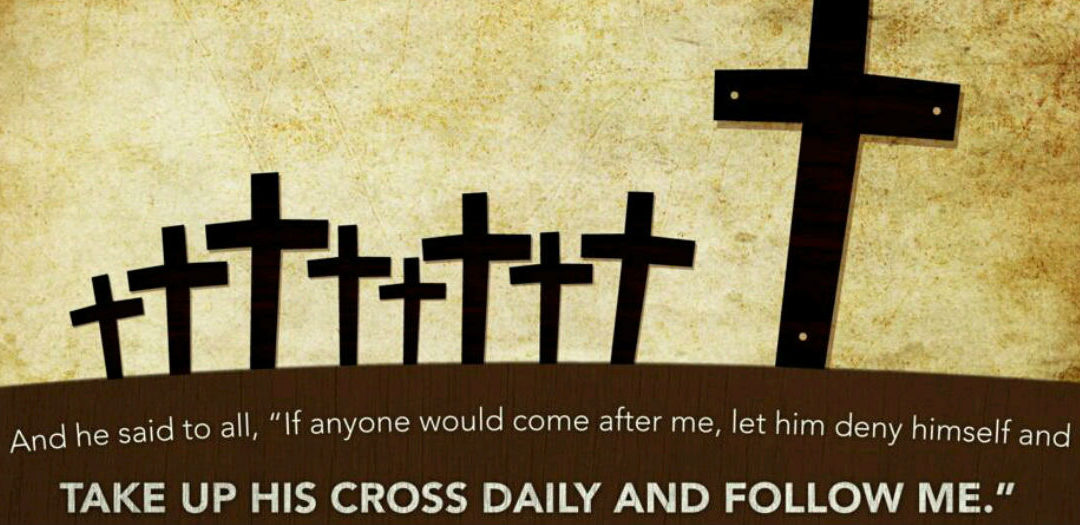BY PASTOR GARETH on November 29, 2017
In our third and final message of our series Cozy Christianity and the Counter-Cultural Christ, we looked at Matthew 10:26-39 and some of the practical implications of what it means to follow the counter-cultural Christ. We were asked, when it comes to our approach to the life of discipleship in the world, whether we are more inclined to build bunkers or bridges. That is, when we think about the inevitable conflict we will face as followers of Jesus, what is our natural reaction going to be: to withdraw from the conflict and build bunkers of protection, or to engage in the conflict building bridges of love through our living out of the gospel message?
It is clear from the first part of this passage that Jesus intends for the gospel of the Good News of his Kingdom is meant to be proclaimed from the rooftops. What Jesus reveals to his disciples in the secret places of the darkness, we are to shine forth in the light for all the world to see (vv. 26-31). (For those who may want to ask whether these instructions were given only to the disciples standing there, I invite you again to look at the broader context of Jesus’ teachings in this section of Matthew. It should become abundantly clear that Jesus is taking the long view in terms of the mission of the disciples in the world – it extends well beyond the twelve who were with him for his earthly ministry). Again and again throughout this section, Jesus tells his disciples to not be afraid – a common refrain throughout the entire Bible.
God often calls his people to enter into new territory, to go into places that without him they would rather not go (Moses, Gideon, Elijah, Peter, Paul, and many others). He does not, however, send them without the promise of his presence – and therefore they need not be afraid. Fear leads us to build bunkers. Faith sees a way across the water when seemingly there is none. It is in this context that Jesus says one of his oft-quoted phrases about God’s care and concern for his people: “even the very hairs of your head are all numbered” (v. 30). We often look to this verse as support for God’s providential care, and we are not wrong in doing so. However, we cannot remove it from the context of the sending on mission into a hostile environment. Jesus is encouraging us through these words to remember who is the real king, who’s really in control, when he is sending off into spiritual battle against the forces of darkness and evil in this world with the Good News of God’s Kingdom. This battle will continue until Christ returns to establish his Kingdom in its fullness with the new heavens and the new earth. Hence why Jesus says: “Do not suppose that I have come to bring peace on earth. I did not come to bring peace, but a sword”. As Western Christians in today’s world, we have a harder time hearing these words than we think.
We live in what is often called the post-modern and post-Christian era. There is a great deal of information out there that I could reference to help explain this better, but I’d encourage you to do that on your own. What is important for today is this notion of “post-Christian”. I might suggest this is better termed “post-Christendom”. For a very long time in the Western world (really since the time of Constantine in approx. 312 A.D.), Christians have enjoyed a great measure of “peace” insofar as the ethics and rituals of Christianity have been the mainstream for a very long time. This is no longer the case. Christians are no longer in the majority. Our present anxieties as the Western church are in many ways related to this reality. We are trying to figure out what it means to be the church in a world that is hostile towards us. Some choose to deny this reality by seeking to find ways to preserve or return to Christendom (building bunkers). But if Jesus came to bring a sword, and not peace, is this even the correct motivation or goal? Is this what Jesus had in mind for the church when he said to Peter “I tell you that you are Peter, and on this rock I will build my church, and the gates of Hades will not overcome it” (Mt. 16:18)?
Understanding this in connection to Jesus’ words of comfort in the previous section, we begin to see that God “preserving” his saints is not putting them in jars and storing them on shelves until he’s ready to use them! It means preserving them in the face of, in the midst of opposition as the Kingdom of God advances against the forces of darkness and evil in this world. And no place is untouched by this conflict, not even our own families (vv. 35-37). The battle begins at home. When the forces of darkness are trying to destroy us through our most intimate relations, either by making them idolatrous or by lashing out against us, we are called to stand and fight. We are called to fight under the banner of him to whom we owe our ultimate allegiance: Jesus Christ.
In seeking to “save” our life by living according to the surrounding culture, we will lose it, Jesus says. But if we lose our lives for Jesus’ sake, we will truly find it. The reward is far greater than anything this world has to offer. Will you journey with me as we seek together to follow Jesus?
Homework
1. Re-read Matthew 10:26-39 at least 2 more times this week
a. What is your reaction when you read the statement that Jesus has not come to bring peace to the earth? Why?
b. Are there any relationships in your life surpassing your devotion to Jesus? Why are they?What would it mean for you to love Jesus more than them?
c. If Jesus is truly your first love, how does this impact your other relationships?
2. In light of the 3 messages from this series, take time to reflect on this week on whether or not you are ready to take up your cross and follow Jesus

